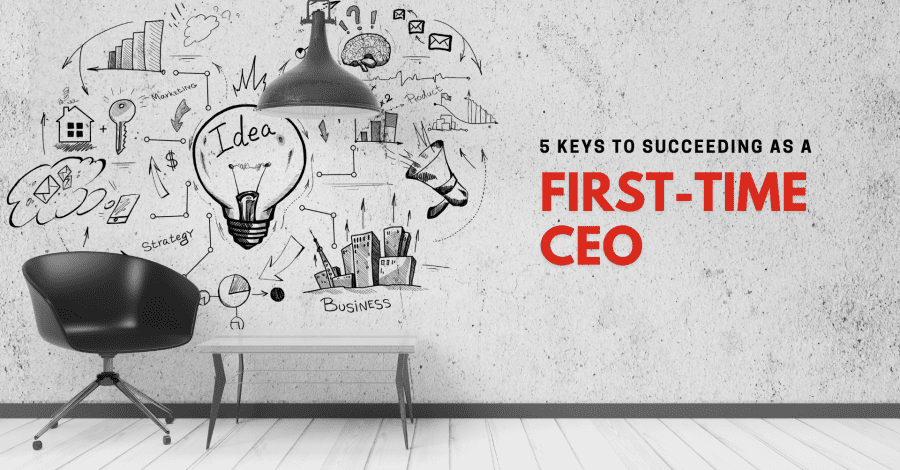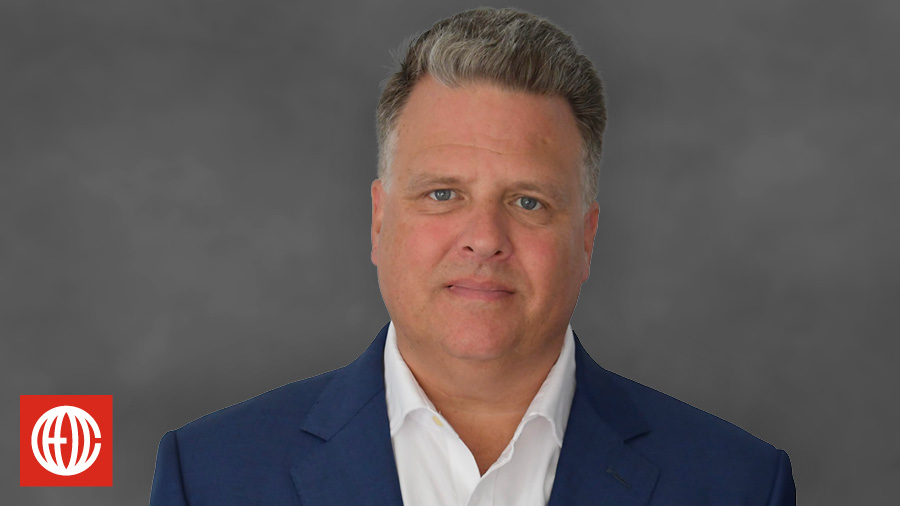
Guest: Douglas DeBoer, a coach at CEO Coaching International. Douglas is a three-time CEO with extensive experience leading companies to strong growth and monetization outcomes. He has led companies and brands in the USA, China, and Asia-Pacific, including Domino’s pizza, General Mills, Dunkin’ Donuts, Baskin-Robbins, Colgate-Palmolive, and Unilever.
Key Insights:
What is this podcast all about? It’s designed to help entrepreneurs and CEOs grow their business, develop their people, and elevate their own performance. We’ll share what the best of the best are doing as it relates to entrepreneurial success, best practices, leadership, sales, marketing, personal development, and solving the challenges that business leaders face.
Quick Background: Many entrepreneurs and C-suite executives think they’re ready to take the BIG job as CEO. But until you’ve sat in that chair and felt the weight of an entire company — and the well-being of all its employees — resting on your shoulders, it’s hard to appreciate the level of responsibility you’re taking on or anticipate how you as a leader will react to that responsibility.
On today’s show, Douglas DeBoer shares five things every first-time CEO should be prepared to do to set up their company, their team, and themselves for BIG success.
Keys to Success for First-Time CEOs from Douglas DeBoer
1. Make sure you can win.
“When you’re considering a company, really understand the culture of the firm,” advises Douglas, “especially if the company is founder led, especially if the company has had many years of history. Older cultures in a company are very hard to change and they can create significant obstacles for the CEO to make a positive impact.”
Maybe the most important part of analyzing your potential fit with a company is determining if you, the founder, and the board are all on the same page. What are the top-level goals you all want to hit? What resources are available to you? What’s the timeline for passing significant milestones? And how much authority do you have to change the current culture if it’s preventing the company from achieving its objectives?
Douglas warns, “In my experience, the only way to significantly change a culture, especially cultures that might be toxic in nature, is quickly changing out a significant portion of the senior leadership team, and it’s a lot of hard work.” Spare yourself that frustration if you don’t think there are too many issues with leadership.
2. Take nothing for granted.
Hired-gun CEOs like Douglas know that every new job requires a completely fresh perspective. Even competing companies in the same industry will have very different best practices. Some work, some don’t. The new CEO has to get granular ASAP.
“You have maybe three months where you can find issues in the new organization and bring them up,” Douglas says. “After that, any previous mistakes become your mistakes.”
One of Douglas’ entrepreneur coaching clients saw first hand just how important a thorough company review can be. After his client took a new CEO job, Douglas worked with him and a consultant to assess the company’s finances. They discovered a $1 million accounting error that the old CEO had missed.
“Number one, if you have wrong information, you’re going to make wrong decisions about the company,” Douglas says. “Number two, as a CEO, getting the confidence of the founder or the board is critical. In this particular example, the CEO was able to gain confidence from the board because he was able to find this mistake early, rather than losing confidence if he had found this mistake maybe a year later when plans had been in place and expectations had been set.”
3. Be confident.
Navigating the corporate culture and solidifying your relationships with the founder and board can make it hard for new CEOs to find their footing. Unfortunately, the company you’re running can’t afford to have its leader tip-toeing around various responsibilities and difficult decisions.

One of the best ways for new CEOs to gain the confidence they need to be effective CEOs is to learn from someone who’s been there before. “In my first CEO engagement, I had an executive coach,” Douglas says. “I had two amazing benefits. The first one was to set up my expectations as a CEO. The second one was to help as a third party to ensure great communication and alignment between myself and my board. My coach told me, ‘Either you will make it all the way to the end of the investment, you’ll have a great monetization, and you’ll have a great exit. Or you get fired. It’s binary. For you to have confidence as a CEO, you need to set up your life to be able to win either way.'”
In many industries, the reality for a new CEO really is that stark. Build out a professional network outside of your new company that will put you in the best position to succeed: attorneys who will dot every I and cross every T; a financial advisor who can help you plan for the future; an entrepreneur coach or a mentor you can trust to advise you and hold you accountable. With that support system in place, you’re going to feel a lot more confident about making tough calls that might not always be popular at every level of the organization.
“I believe that there’s a time in every CEO’s career where they have to stand up for something and some decision they know is right,” Douglas says. “This might be something that if it’s not agreed upon, it could end your tenure as a CEO. You just have to have the confidence in yourself, and frankly in your life position, to be able to push back on the things that are important for the business.”
4. Be selfish.
One of the worst things a new CEO can do is spend too much time worrying about being liked. Some of your decisions might be unpopular, especially when it comes to longstanding best practices or beloved employees who are coasting along on goodwill. But if the CEO is too scared to put the company in the best possible position to succeed, then everyone is going to fail.
“This is your team, it’s a world-class team,” Douglas says. “You have to be selfish on who you allow on your team. Only allow people who are aligned with the culture and your strategy and who are A players. A players are the ones that will hold other A players to the highest standard. It’s about being that focused, that extreme, to say, ‘I am not going to tolerate on our team people who are not A players.’ While being selfish, frankly, it’s also about being professional.”
Douglas’ idea of professional selfishness also applies to how he thinks about assembling A players. Your direct reports should complement your skillset, whether that means enhancing your strengths, building up your weaknesses, or managing tasks that could distract you from top CEO priorities. It’s your responsibility to assemble the right mix of skills and personalities that will help you achieve your ultimate goals for the company, and yes, for yourself.
“It’s being introspective and asking, ‘What type of CEO am I?'” Douglas says. “Be open about your specialties and say, ‘My goal as a CEO is to take the company from point A to point B. Here’s what I’ve come to do. I’ve done it. Should I stay longer? Is that the best thing for the company and for myself, or should I go and find another opportunity?'”
5. Act like you’re always front page news.
Years ago, a founder who was in the process of hiring Douglas as CEO leaked the news to the press. Seeing his name in stories before the ink had dried on his new contract made Douglas realize just how much scrutiny CEOs are under.
He says, “The experience made me think about my life as a CEO and to live it with the expectation that everything you do or say could be on the front page of the news, because that’s the reality. Every day you are evaluated by your team, every day you are evaluated by your partners, by your board. But if you do the five things we’ve discussed, you will work with professionalism and integrity. Your actions and reputation will attract great people to your team, and through these teams, you’ll achieve great results. You’ll be comfortable that anything that you do, if it gets on the front page of the news, that’ll be fine. I think that perspective is the way to set yourself up to be a great and successful CEO.”
Top Takeaways
1. Just say “No”to any job that won’t put you in the best position for success.
2. Surround yourself with A players who will make your job easier.
3. Do what’s right in the long term even if you face short-term resistance.
[Tweet “A growing company can’t afford to wait for a first-time CEO to grow into the job.”]
About CEO Coaching International
CEO Coaching International works with CEOs and their leadership teams to achieve extraordinary results quarter after quarter, year after year. Known globally for its success in coaching growth-focused entrepreneurs to meaningful exits, CEO Coaching International has coached more than 1,000 CEOs and entrepreneurs in more than 60 countries and 45 industries. The coaches at CEO Coaching International are former CEOs, presidents, or executives who have made BIG happen. The firm’s coaches have led double-digit sales and profit growth in businesses ranging in size from startups to over $10 billion, and many are founders that have led their companies through successful eight, nine, and ten-figure exits. Companies working with CEO Coaching International for two years or more have experienced an average revenue CAGR of 31% (2.6X the U.S. average) and an average EBITDA CAGR of 52.3% (more than 5X the U.S. average).
Learn more about executive coaching | Meet our world-class coaches








